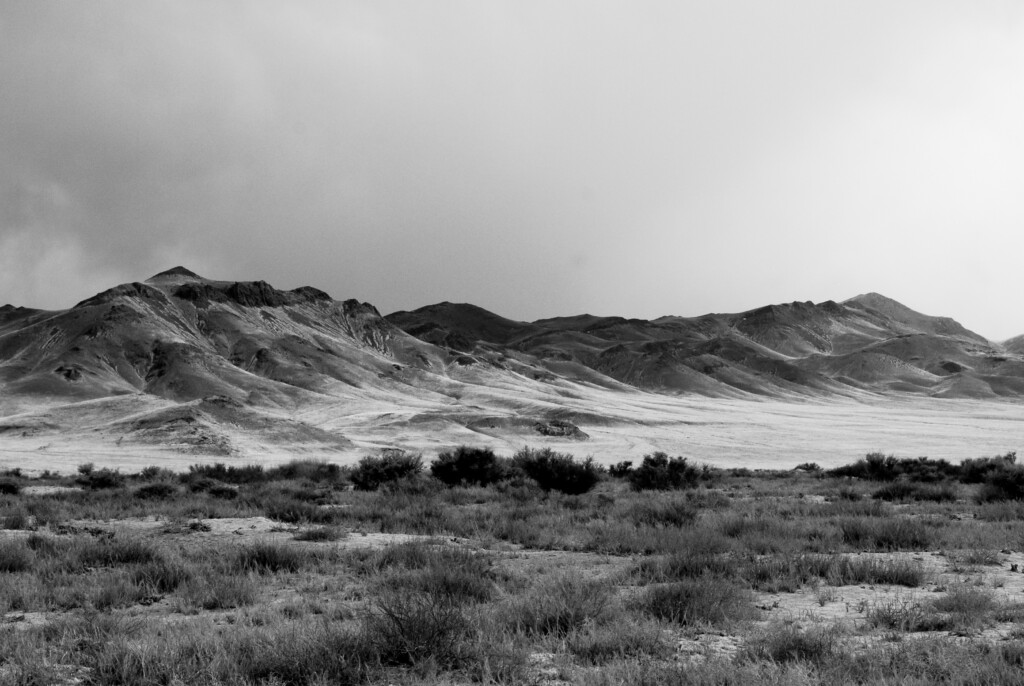Tech company Blockchains' water deal is not a done deal, according to court records. State Engineer shows a keen eye for "good deeds." One lesson all parties know: It takes real money to have a water fight in court.

PHOTO: The San Emidio Desert just north of Pyramid Lake has long been targeted for water exportation.
The list of powerful entities looking to acquire water in the west grows by the day, and the tech/crypto cadre is no exception. In the deserts of Nevada, one crypto company is questioning the State Engineer’s eye for good “deeds.”
Two years ago, revelations emerged that burgeoning tech/crypto company Blockchains was acquiring water in the desert northeast of Pyramid Lake –– in basins that have long been on the Real Estate Development Industrial Complex’s radar as a potential region to grab water.
But now it appears that the ownership of those water rights is in question –– with a mishmash of companies and the Nevada State Engineer battling in state court over murky issues of clouded title.
More than a year ago, the Nevada State Engineer denied a request by Blockchains to update the ownership status relating to the $35 million worth of water rights the tech company purchased from Sonterra Development in late 2020.
The State Engineer alleged that –– due to language in the deed of trust –– it could not update the transfer because a company with a financial stake in the water rights, Granite Investments, had an encumbrance. In other words, Granite had not yet given Sonterra its blessing on the sale of $35 million worth of water to the tech company.
The questions at play aren’t the usual conflicts we see in water cases, but they pose the following issues:
Should the State Engineer be the gatekeeper when it comes to title disputes in water matters? Or should Blockchains be able to use the water despite the issues of clouded title?
From where we stand, the State Engineer is in the middle of a nasty battle between companies vying to control desert water. And the concerns about updating ownership status are valid because of the express language in the deed of trust. Ultimately, a judge will decide.
The case underscores the technocratic considerations in water rights ownership in a way that isn’t too sexy. But the end result of this case will have huge impacts on the future of water exportation in the fast-growing Reno Metropolitan Area and the basins around Pyramid Lake. And as more deep pockets look to fill shallow dreams with desert water, more cases like the one now moving through Nevada’s Second Judicial District Court could arise –– bringing more players into the byzantine world of western water law. With oral arguments already having taken place, it’s likely that the judge will hand down a decision before the end of summer, adding clarity to a murky issue for the parties involved and onlookers alike.
The filings in District Court also highlight the precarious nature of Blockchains’ efforts to stake a claim for crypto water in Nevada. The conflict with Granite Investments signals that some big-money interests are not comfortable with crypto/tech outfits like Blockchains. Or maybe they are just worried about Blockchains? Court records don’t disclose that information.
What appeared to be the principal reason for Blockchains acquisition of the water rights was a new-age real estate scheme. In 2021, Blockchains’ millionaire founder Jeffrey Berns pushed then-Governor Steve Sisolak and his team to ask the Legislature to create a special district in Nevada that would create a crypto community via an apparatus of tax breaks and other financial goodies. Fortunately, the Nevada Legislature resisted a giveaway to create Blockchainsville.
At issue for Blockchains, however, wasn’t just a special tax zone. It was water.
There is no water left for appropriation in the Tahoe Reno Industrial Center and surrounding areas where Blockchains purchased a big chunk of land. Therefore, the visions of developing a crypto community had a major hurdle. Enter Sonterra, which had acquired water rights in the San Emidio Desert and Hualapai Flat in the early 2000s as part of a real estate scheme that went bust during the Great Recession.
GBWN helped defeat Sonterra’s attempts to acquire new water back then. But Sonterra bought a farming operation –– one that had originally been acquired by Granite –– in order to acquire water rights and wait for a new buyer. The new buyer was ultimately Blockchains. But, per the documents we’ve reviewed in state court, Granite Investments doesn’t seem eager to settle this title dispute.
And one can only wonder why: Does a big interest in the financial future of that water have faith that crypto bros can make the desert bloom with cash-less and ledger-less technologies? Does the lender question the ability of Blockchains to get approval for an inter-basin transfer that would span more than 70 miles to get from deserts north of Pyramid Lake to the Tahoe Reno Industrial Center?
We can only ruminate on the future right now. So we’ll leave the speculating to the crypto bros and real estate flippers.
Here are relevant items from the ongoing docket in state district court:

